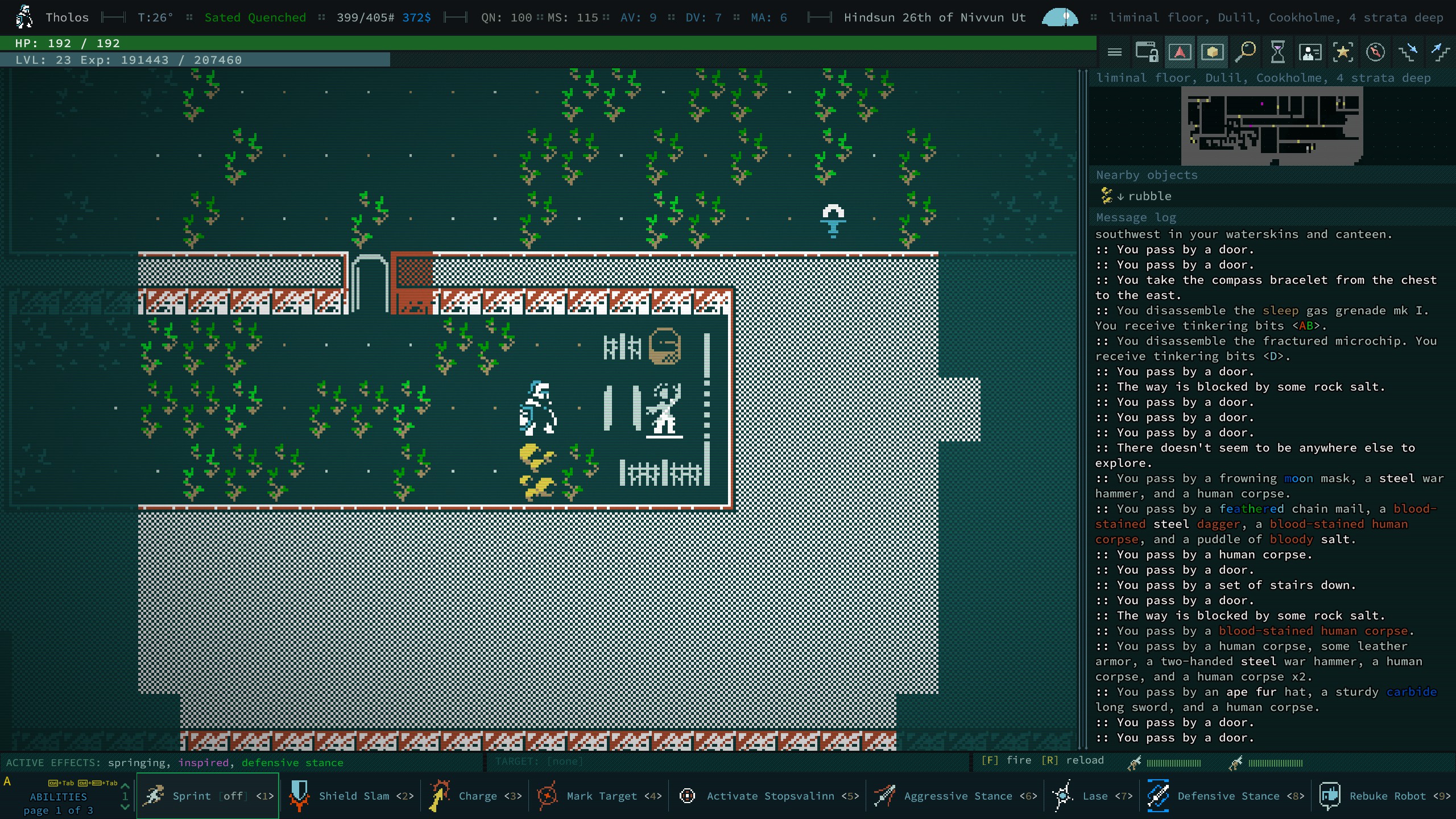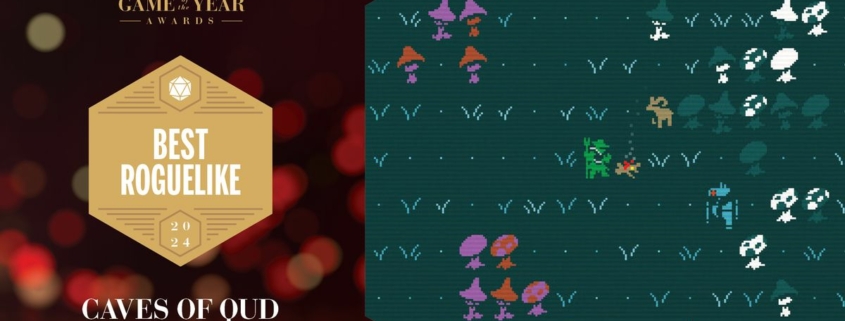Best Roguelike 2024: Caves of Qud
Our favourite roguelike of the year was deeply strange and absurdly deep. It’s the impossibly inventive retrofuturist fantasy Caves of Qud. For more awards, check out our Game of the Year 2024 hub.
Lincoln Carpenter, News Writer: There is too much to say about Caves of Qud, but it never quite feels like I’ve said enough.
It’s a roguelike’s roguelike: A science-fantasy wasteland populated by a rich gnarl of combat systems and procedural world-state simulations that have no qualms about leveraging their brutality against you. Qud has an absurd breadth of possibility to offer: I’ve started games as two-hearted barbarians and ended them as winged, railgun-toting scorpion-men. I’ve entered Qud as a cyborg gunslinger, and within a few levels and chance augmentation procedures in Becoming Nooks I no longer needed my pistols, because I was throwing force knives that I could 3D print with my mind. I’ve started as many new playthroughs just to try a new idea for a centaur rifleman or steel-plated pugilist as I have because my last character met a grisly end after getting their head erupted by a psychic duelist in a subterranean ruin.
As exciting as my newest character build might be, it’s Qud’s setting that makes that next playthrough so appealing. Qud’s history is unknowably long, and each run generates its own inscrutable variation on those countless centuries of crumbling civilizations and shambling, paradimensional horrors. Those histories are gradually excavated as you explore; by inspecting statues, paintings, and inscriptions, you’ll learn about sultans assassinated with knives made of sand, prophesied children born with mouths full of circuitry, villages founded by bird-worshipping robot cults.
Qud’s real treasure is its writing. Its NPCs have their own dialects, tics, and idioms reflecting their own histories in Qud’s surreal world, granting a sense of humanity even to those that—to us—seem the most inhuman. Every item and creature, meanwhile, has a unique description in gorgeously arcane, purposefully excessive prose. Mutants are “vessels of the metamorphic numen”; old statues are “erosion-smoothed abstractions.” In Qud, a chair isn’t a chair. It’s a “wharf for the ass.”

Sure, it’s self-indulgent, but those excesses are deliberate. It’s a game seeking to feel like an artifact impossibly out of time, and it succeeds. Once you’ve made it past your introductory dozen-or-so deaths at the hands of hyenafolk and gyre-wights, playing Caves of Qud feels like reading a history book written on the other side of an unfathomably distant future, in a language you only understand just well enough to be enthralled.
Wes Fenlon, Senior Editor: The world is richer for having Qud in it. As with Dwarf Fortress, you can benefit from afar: The stories its players tell about sentient furniture and unplanned limb growth are their own small treasures. It’s a rare feat for a game to have writing that is by itself powerfully evocative while also leaving room, in between its simple graphics and bogglingly vast possibility space, for people to fill in the vivid details of their own adventures. There’s so much comedic and emotional potential in games that dare to go as systems-heavy as Qud does. Like, say, slipping on a slime and falling for so long that you pass a holy place on the way down, or being prompted to name the weapon you’ve just used to slaughter endless baboons, or crushing yourself with a spacetime vortex, as happened to PC Gamer contributor Len Hafer.
Even when I’m not playing Qud, I love reading about the experiences other players are having in it. Outside Dwarf Fortress, EVE Online, and perhaps Kenshi, I don’t think any game has prompted better ones.
Evan Lahti, Strategic Director: I’m determined to get better at Caves of Qud, and play it more over the holiday break if only because it is such a resounding conduit for those indulgent, Mad Libs-arranged proper nouns that Lincoln mentions.
Source link




